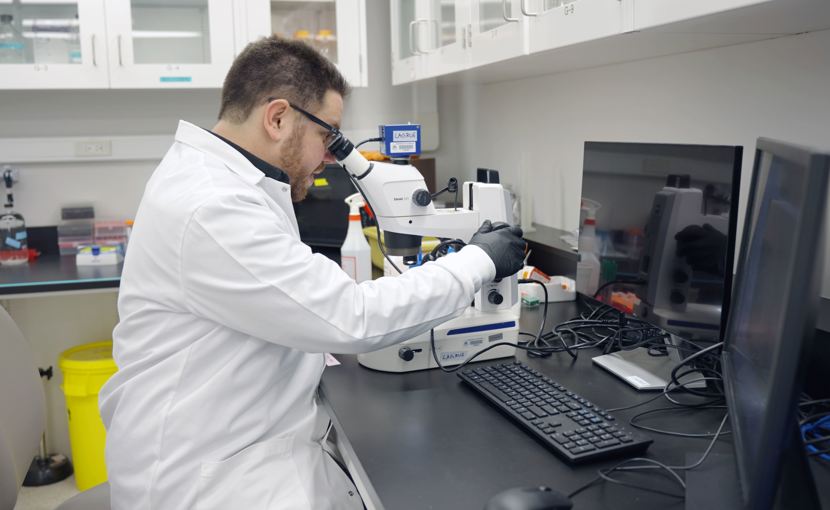Some biologists work primarily in the field, organizing and participating in field inventories or surveys. They document species and relevant data for various types of studies, for consulting or environmental impact assessments, or for reclamation and other purposes. Other biologists do laboratory research and offer advice and expertise to others. In general, biologists:
- Identify and inventory plants and animals or micro-organisms and fungi
- Organize and carry out field studies to analyze and monitor things like population dynamics, genetics, or habitat
- Take samples and conduct tests in laboratories
- Research how organisms develop and function
- Apply biological principles to advance medicine and health studies
- Analyze and interpret data and write scientific papers and reports
- Use statistics and mathematical models for applications, such as estimating the number and kinds of organisms in a specific location, noting trends in population sizes, or understanding molecular and cellular processes
- Assess harvest rates and sustainable yield for fish and wildlife species
- Consult with stakeholders and the public to explore resource management options
- Identify the causes of plant decline
- Make recommendations for the sustainable development of resources
- Recommend operating standards for industrial activities to minimize environmental impact
- Provide information and make presentations to schools, clubs, and interest groups
- Supervise the work of biological technicians and other staff
- Present scientific data to the public and stakeholders
Many biologists who do research are also required to teach.
Biologists take on a wide variety of job titles depending on their area of specialization. For example, aquatic biologists may be called fisheries biologists, invertebrate biologists, limnologists, or marine biologists. It all depends on the types of organisms (such as fish or plankton) and habitats (ocean or freshwater) they study.
There are many specialties in each of the following broad areas of study.
Botanists and plant biologists study plants and plant systems, such as plant growth, development, function, distribution, and origin. They may study their applications in medicine, agriculture, and synthesis. They also study related environmental issues such as conservation, re-vegetation, and weed control.
Fisheries biologists study freshwater fish and their habitats.
Marine biologists study bacteria, plankton, plants, and animals that live in oceans and seas and on their shorelines.
Wildlife biologists study wildlife (birds, reptiles, mammals, and amphibians), wildlife habitat, and environmental interactions, such as the effects of fire. They apply their knowledge to managing wildlife resources and natural habitats.
For information about other areas of study, see the Biochemist, Ecologist, Entomologist, Food Scientist, Geneticist, Microbiologist, Pharmacologist, and Toxicologist occupational profiles.



